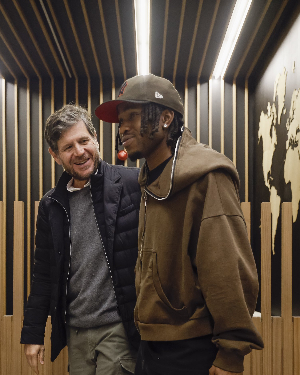The rising unemployment in Nigeria has pushed many career seekers into the country’s crypto industry, just as job opportunities in the cryptocurrency market have continued to grow on a yearly basis as more investors pour into the market, bringing funds and new companies along.
Nigeria accounts for one of the countries with the highest unemployment rate in the world. According to data from the National Bureau of Statistics (NBS), Nigeria recorded 27.1 percent growth in unemployment in the second quarter of 2020 compared to the 23 percent in the third quarter of 2018, of which youths make up a large chunk of that number of people without jobs.
Also data from the United Nations showed nearly 14 million young people are out of job in Nigeria, which has one of the world’s largest youth populations, with more than a third of its 200 million people aged 24 or under.
Meanwhile, economists forecast the rate of unemployment may rise further to 30 percent on the back of the COVID-19 pandemic-induced job losses.
In Nigeria where employment opportunities are difficult to find, the cryptocurrency market has become an oasis for many young people.
A report by Glassdoor showed a growing demand for talent in the cryptocurrency industry, with job openings in the United States rising by 300 percent year-on-year.
Another report by Indeed.com showed that between December 2016 and December 2017, there was a 207 percent increase in job postings for blockchain positions.
The share of cryptocurrency job postings per million grew by 26 percent in 2018. In addition, the share of these roles per million increased by 1,457 percent between 2015 and 2019.
According to the Blockchain Industry Coordinating Committee of Nigeria (BICCoN), in a number of the local and global brands in the industry, Nigerians are chief executive officers (CEOs), chief technology officers (CTOs), country directors, marketing managers, community managers, legal and compliance officers.
Local blockchain and crypto authors, educators, forensic experts, journalists, lawyers, presenters, programmers, reporters, researchers, software developers, writers, among others, have also emerged, bringing about an ecosystem of innovation, collaboration, and growth.
A Legal Practiner, Sam Adegoke, said: “Law firms should be exploring the blockchain and cryptocurrency spaces by now. A lot of opportunities abound for young lawyers and students of law who are looking for career opportunities in that industry.”
With interest growing among young people pursuing careers in cryptocurrency, companies like Binance, Bundle, BuyCoins, Luno, and Quidax have stepped up with programs that enable them to deepen their knowledge of the market and become professionals.
Binance had hosted over 400 free events in 2020, getting attendees in more than 40 countries – many in Africa – online and offline. Usually, a crypto masterclass undertaken by any private entity could cost as much as $200 per student.
The first Binance Masterclass went live on January 24, 2020 in Benin, capital of Edo State, Nigeria. The Binance Masterclass for Africa series provides necessary crypto education for over 30,000 confirmed attendees and reaching over 70,000 people via registrations and YouTube views.
The six hours intensive seminar, which included a comprehensive crash course into understanding bitcoin, blockchain, trading, etc, was attended by 222 people.
Following the success of the maiden edition, the Binance Africa team on February 4, 2020 launched the Campus Ambassador program with seven ambassadors in seven universities.
The ambassadors have so far hosted 30 campus webinars and over 100 Ask Me Anything events (AMAs) monthly in 2020. AMAs provide participants the opportunity to ask questions and get answers from expert facilitators.
Luno has also led significant educational activities in the market. During the lockdown, Luno took a more virtual approach to customer engagement by hosting a series of trading webinars as part of their focus to educate the masses about cryptocurrency and its use cases.
It recorded over 15,000 concurrent views in total within a quarter. Indeed there has been a huge spike in cryptocurrency and blockchain interest among Nigerians because of its educational and career benefits – for traders and non-traders.
BuyCoins on its part, in 2020 launched a free online course that hundreds of people have used to learn about bitcoin and how to trade safely. Within a month of its launch, the course had over 500 active students.
Outside of cryptocurrency, exchanges also engage in social impact work that creates educational opportunities for young people. For instance, in 2020, BuyCoins partnered with Lambda School, a highly reputable online coding academy, to sponsor over 50 students throughout their six months in the program.
The students were provided a co-working space, paid monthly Internet subscriptions, and any additional support that they needed.
A spokesperson for the company who spoke under anonymity said: “Because we understand that it’s not enough to create opportunities without paving the paths for young people to access them.”
Last year, cryptocurrency exchange, Quidax hosted a five session online event to teach people about cryptocurrencies and how they can invest in them. Across the five sessions over 1,000 people signed up and attended the event.
To facilitate the event Quidax has used everyday crypto investors and traders to make it easier for participants to understand cryptocurrencies.
Bundle, a social payments app for cash and cryptocurrencies, since it was launched in April 2020 has provided educational support to Nigerians with interest in the cryptocurrency market.
The company has designed weekly Knowledge-Sharing Sessions to help its 12,000-member strong community learn the basics of cryptocurrency as well as the immense possibilities of blockchain technology.
Bundle also hosts a monthly AMA (Ask Me Anything) featuring a variety of crypto experts from around the world who field questions from its community members.
Past guests include Nischal Shetty, founder of top Indian crypto exchange WazirX, and the co-founders of the Ethereum Push Notification Service – Richa Joshi and Harsh Rajat.
Experts say because degrees in blockchain and cryptocurrency are rare and almost do not exist, recruiters focus more on specific skill sets to make their decisions. A Linkedin report noted that blockchain was expected to be the top-demanded hard skill in the job market in 2020.
One of the skills companies look for in new hires is a firsthand experience like interacting with the blockchain, investing in bitcoin, or yield farming on Ethereum.
Former president of the Columbia Blockchain Club, Nir Kabessa, said the first interview question at crypto-focused companies is usually “How does bitcoin work?”
For candidates applying for a developer role, experts say ‘it is better to contribute to open-source projects and let the code speak for itself’.
This is because there have been many cases where applicants claim to know some of the coding languages and get caught in the test round. Other skills are in the fields of communication, marketing, data analytics, machine learning engineering, and research analysis, to mention but a few.
And as more industries and countries continue to learn more about crypto currencies, and adopt same as a legal means of transaction, no better time for a country like Nigeria who prides itself as the giant of Africa to take intentional steps towards learning all that there is about the crypto industry, and fashion how it can best be leveraged.
Business News of Saturday, 20 February 2021
Source: guardian.ng













